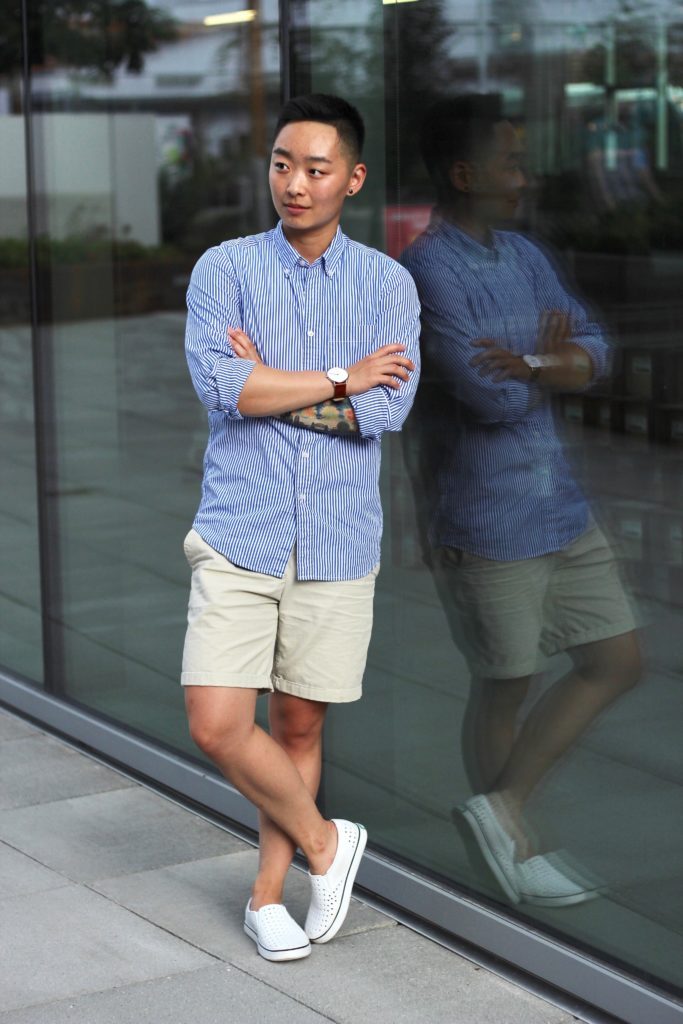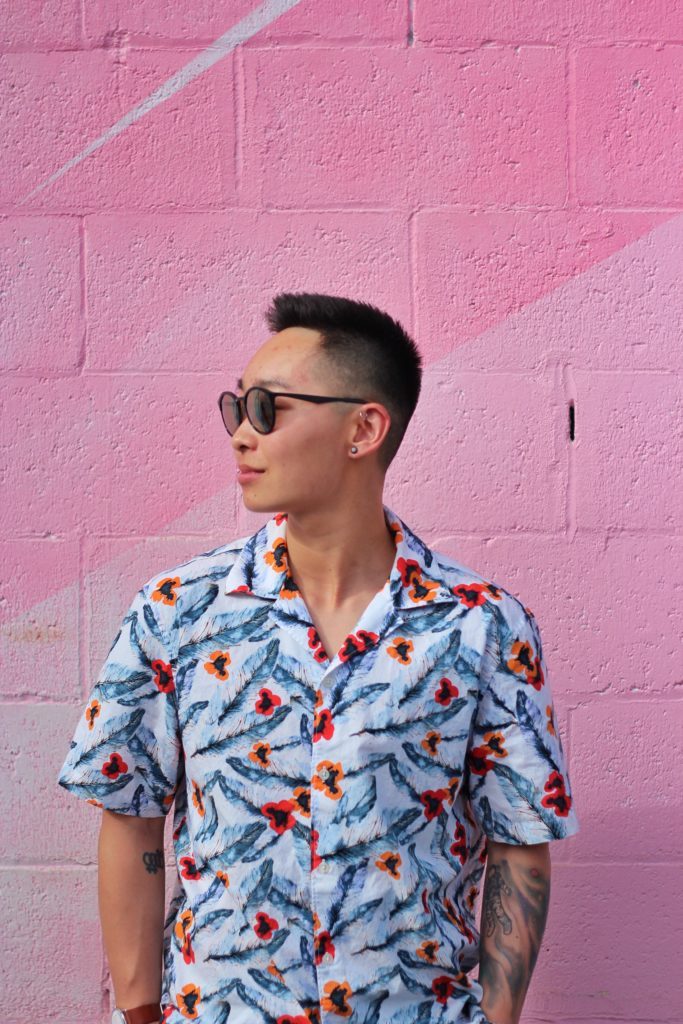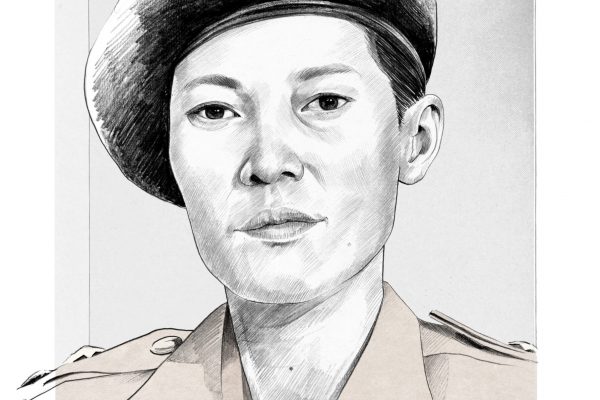Noah’s Journey: Life as an Asian-Canadian trans man
Noah Yang was scrolling through Instagram one day, when he decided to search the hashtag “transgender man”. This was 2018, when social media was becoming more diverse, as well as an increasingly popular medium for trans-identifying people to share their experiences.
Yang, who grew up in Vancouver, Canada, had been planning his own journey from female-to-male for some time. Looking through the myriad of profiles, Yang felt inspired.
“It made me realise transitioning was a possibility that I could achieve,” recalls the 23-year old Chinese-Canadian, who identifies as a transgender male. “Seeing so many others do it on Instagram helped me chase the life, body and respect I wanted.”
However, Yang also noticed that he was a minority. “There were not many trans guys who were Asian on it at the time,” he says. “I wanted to share my journey, even if it helps just one other person out there.”
In the fall of 2018, shortly before he began undergoing testosterone injections ahead of his transition, Yang launched his public Instagram account @QuinoahPowerSalad where he chronicles his life and shares useful information on the process.
He has written about everything from dealing with gender dysphoria – a condition where one feels a mismatch between biological sex and pyschological gender identity – to gradually receiving his mother’s support.
Here is Yang’s story, in his own words:
“There wasn’t exactly an ‘aha’ moment in my life, where I was like, ‘Ooh, I am trans,’ or ‘I want to transition.’ It was a gradual process. I think that’s mainly because I was never educated on the possibilities of the gender spectrum. I didn’t have the words or role models to express how I was feeling.
 Yang felt empowered after finding trans resources on social media.
Yang felt empowered after finding trans resources on social media.
“In 2018, I started openly identifying as a trans man. My friends were accepting and supportive. At the time, negative feedback came from my parents, especially my mom. She was born and raised in Beijing, and is more conservative and collectivistic.
“She was not okay with me being trans. We fought a lot. But over time, we realised we still loved each other and needed to figure this out. I think it just boiled down to communication and time.
“It took me a long time to start the process of my physical transition, because I wanted to have my family’s blessing. That process took about two to three years.
“My mom wasn’t really saying, ‘You can’t do this.’ She knows I’m at an age where she can’t control my life. Her concerns were, one: are you sure you want to do this, because it can’t be reversed. And two, is it safe for your health?
“I told her there are health risks but they are low. I did a lot of research on hormone treatments and then relayed it to her. I’m really lucky because in my province, British Columbia, the Trans Care BC programme is government-funded.
“So I went to see a doctor there who explained the process, what changes to expect, health concerns… And then I did my own research looking at academic science journals online. Another big portion of my research was anecdotal. There is not a lot of research done on this, so a big bulk of information came from other trans men’s experiences.
“I started the transition process by taking a shot of testosterone each week. There are some changes that are permanent, like my voice dropping and hair growth. But other changes like fat redistribution and facial masculinisation are temporary. I’m just lucky to live in Canada where access to testosterone is such a simple process.
“For my top surgery – male chest reconstruction, which involves the removal of breast tissue and masculinisation of my chest – planning took a bit of time. I had already put my family through a lot of stress, worry and pain. I was very aware of that, so I hesitated before booking the procedure.
“The surgery comes with some risks since it involves general anesthesia, which can cause potential health complications for some people. Once I registered for top surgery, the process was simple enough. Getting a surgeon, having a consultation, undergoing surgery, all the follow-ups… it’s all really well taken care of by the government. Recovery wasn’t that painful, but I have a high threshold for pain.
“As for future procedures, like getting a hysterectomy to remove my uterus, I have a bit of time to decide. Typically people don’t get them until two or three years after they start their testosterone injections to take that step.
“From what I know, even after getting top surgery, trans men still feel gender dysphoria because they know their female reproductive organs are still there, and sometimes you still menstruate despite hormone injection therapy. That’s a pretty big trigger for some guys. For me, I’ll decide based on whatever is the healthiest choice.
“Being a trans man has made me notice how subtle sexism can be. There are big displays, of course, but also microaggressions. For example, when I go to see a healthcare professional about a sports-related injury, I find doctors take my complaints more seriously now that I am male-presenting than when I was female.
 Yang, who is currently undergoing his gender affirmation journey from female to male.
Yang, who is currently undergoing his gender affirmation journey from female to male.
It is what I identify as, but it’s only one aspect of me: I’m a physiotherapy student, rock climber, athlete, a person with goals and ambition. Being a trans man is just my gender identity.”
“I think it stems from sexism because of the stereotype that men are ‘tougher’ than women, so if they’re complaining about pain, they must really be in pain. It also goes the other way around – for example, my female friends will now say, ‘Oh, you won’t get it, because you’re a guy.’
“I’ve always been romantically interested in women. I remember wishing as a kid that I had been born as a guy. Everything would be easier, everything would make so much more sense. Sometimes with my girlfriend now, she’ll joke that I’m ‘such a guy,’ because she wants to affirm my gender.
“So far, I have not received many hateful messages. The positive messages and comments I receive are among the most rewarding experiences from having this blog. I get really nice messages from people, who are sometimes not even trans identifying – they’re just allies. It’s that kind of feedback that makes me feel like I can do this.
“In real life, I don’t typically talk about my trans identity when I meet people. It is what I identify as, but it’s only one aspect of me: I’m a physiotherapy student, rock climber, athlete, a person with goals and ambition. Being a trans man is just my gender identity.”

